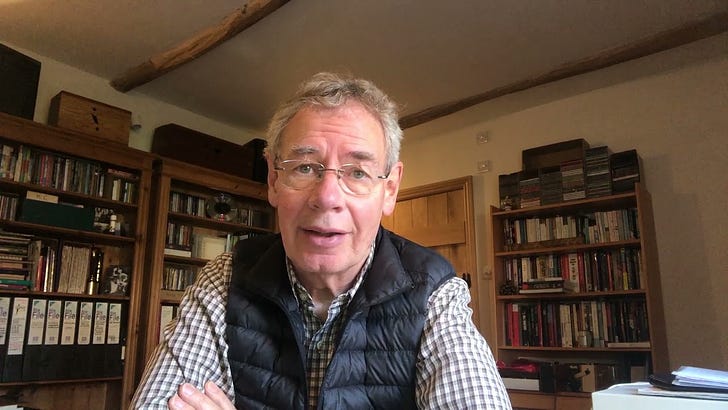Underdiscussed element of the ongoing handwringing involving catalog overtaking new music: The role of inescapable, endlessly repeated classic rock hits of the 1970s.
There’s nothing wrong with listening to old music. But it might be a problem listening to the same old music. All the time. By choice or by default – as when it’s playing in the background in a bar. If it were up to me, “Hotel California” would get the Ten-Year Pause Button (patent pending). Ditto Billy Joel’s “Only the Good Die Young.” If stuff like that is your steady diet, now oh, 40-plus years after it was made, you are basically telling your ears to stop paying attention. To ignore music. Which is not good for you or for music.
I was about to put Yes’ breakthrough hit “Roundabout” on that list until I heard this version:
It’s from the 1989 tour called “An Evening of Yes Music Plus” and is stunning in its technical execution, and also fantastically alive. The tour was billed not as Yes but in the lawfirm-name fashion of the band’s post-Yes reunions. It centered around the band’s most formidible lineup – vocalist Jon Anderson, drummer Bill Bruford, keyboardist Rick Wakeman and guitarist Steve Howe – and included bassist Tony Levin (or, on this clip, Jeff Berlin). In a brief note on the YouTube description, Bruford recalls “Jon sounds in such good voice. It was such a groove playing this after so many years not even thinking about it.” (!).
Bruford, who is 72, posted the clip in early January as part of the launch of his YouTube channel. His intention is to share key works and rarities from his long career – according to Wikipedia, he kept a gig diary, and when he retired from active music performance on January 1 2009, he’d logged 2, 885 gigs. That’s a lot of superfast flams and flamboyant pressrolls in 7/4 time. The initial postings include the above short introductory video, and also this surreal moment in the early ‘80s when King Crimson appeared on ABC-TV’s Fridays show to play “Elephant Talk” from the album Discipline, which as Bruford notes received “serious good reviews” worldwide upon its release. Those reviews were deserved: It still holds up as defiant, uncompromising, provocative. A ripper.
The clip made me lament about how exotic it is to witness musical virtuosos doing thing – without extra visual gimmickry or dancing – on television anymore. And it sent me down a double-kickdrum-sized rabbit hole of music featuring the eminent Dr. Bruford, who earned his PhD in 2016 with a series of studies on musical performance and creativity.
Bruford’s career involved multiple stints with Yes and King Crimson. In between those, he built a supergroup called U.K. with guitarist Alan Holdsworth that reached peaks of prog-rock wonkery that have not been glimpsed since (check “In The Dead of Night” from the band’s torrid 1978 debut). Around the same time, Bruford recorded intricate jazz-fusion projects under his own name (1979’s One of a Kind stands among the visionary ones), and formed a slightly less fusiony band called Earthworks that also went through several iterations.
Bruford’s sculptural approach – with its sweeping dramatic fills across a phalanx of mounted drums both acoustic and electronic – is not instantly accessible, particularly to ears that have been numbed by repeated year-in, year-out exposure to “Free Bird.” There’s a lot going on inside Bruford’s tightly knotted polyrhythms; the compositions sometimes feel cramped, overwritten.
But they’re also downright thrilling: It takes a combination of skill and trust for musicians to pull off these coordinated, sometimes intentionally jarring, shifts of tempo, mood and meter. In a way, the intricacy of this music requires a bit of trust on the part of the listener as well: It’s an investment. You stay with the challenging stuff and follow the interaction of these elite musicians knowing that sooner or later, they’ll wind up someplace breathtaking.
It's inspiring to see an artist like Bruford sharing material from his back pages – and, at least for now, making it free. Maybe he’s concerned that the type of music-making that was his trademark is in danger of vanishing; maybe he’s fed up with a music industry that seeks to monetize every scrap of history. Whatever the motivation, this is a welcome development, an easy escape lane when the tyranny of the classic rock playlist becomes too much.
Thank you, Dr. Bruford. Here’s hoping other musicians will follow your example.
Why yes, we have a fancy digital suggestion box. Share your favorite Underloved/Overlooked records here: echolocatormusic@gmail.com.
Please consider subscribing (it’s free!). And…..please spread the word! (This only works via word of mouth!)




